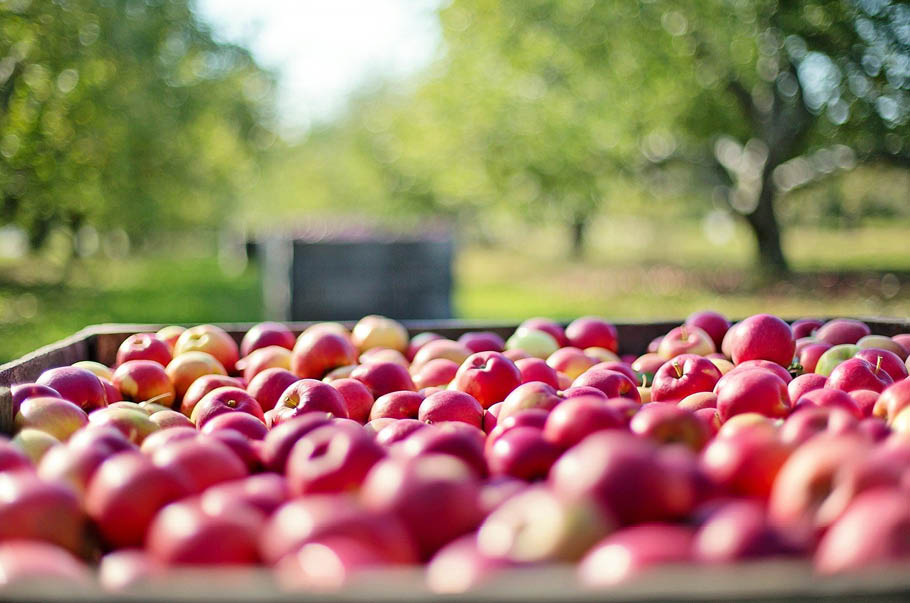Currently, Polish agriculture and the agri-food industry face numerous challenges on foreign markets. On the one hand, we can observe an increase in competition caused by the ongoing processes of globalization and liberalization, on the other hand, agricultural markets have been experiencing significant disruptions in recent years, first caused by the COVID-19 pandemic and now by the armed conflict in Ukraine.
Military operations conducted in Ukraine caused disruptions in supply chains on an unprecedented scale. Before the outbreak of the war, Ukraine, due to its location, climatic and soil conditions, was the world’s leading producer and exporter of grain. The blockade of the Black Sea, which has prevented the transport of grain and other agricultural products, is causing not only disruptions in supply chains but also the risk of famine in African countries.
The opening of the EU market for goods from Ukraine resulted in uncontrolled imports of Ukrainian agricultural products, including those belonging to the so-called sensitive products, largely subject to quota imports until 2022. Agri-food imports from Ukraine to Poland increased threefold from the value of EUR 945 million in 2021 to the value of EUR 2.741 billion in 2022. This caused significant disruptions on agricultural markets, especially in the cereal and soft fruit sector, and the need to support domestic producers and search for new sales markets.
The war crisis in Ukraine is also a huge challenge for Polish agri-food exports where Ukraine is one of the main non-EU destinations. Polish entrepreneurs had to face sales and transport in war conditions.
Trade relations with Belarus constitute an additional difficulty. Belarus, still in 2021, was one of the main Eastern European sales markets for Polish agri-food products and a leading recipient of Polish apples.
As of the 1st of January 2022, on the Belarusian market, there is a ban on the import of agri-food products from a number of countries, including Poland, as regards fruit and vegetables, meat products, dairy products and sweets.
There were also – fortunately, temporary – problems with the sale of Polish apples to Egypt, one of the main recipients of these fruits, which, because of the country’s difficult financial situation, introduced a number of obstacles in foreign trade.
Despite these difficulties, the results of Polish agri-food exports are very good, and last year was another record year for the industry. The value of Polish agri-food exports in 2022 amounted to 47.6 billion.
This is over 27% more than in 2021 and a 9-fold increase compared to 2004. An increase in the value of export was recorded in virtually all commodity groups of agricultural and food products. According to the latest results, the upward trend continues to strengthen.
In the first half of 2023, another increase in the value of exports was recorded, by approximately 16%, compared to the first half of the previous year. This proves the development of the Polish agri-food sector and the strengthening of its role in the Polish and global economy.
Polish food brands are becoming recognizable and known in the world, not only in nearby European markets. Sales markets in the Middle East have got great potential (including Saudi Arabia, Israel, United Arab Emirates) and in Asia (Japan, South Korea, Singapore and Vietnam), as well as in Africa (including Algeria).
Let me give you some examples: Polish apples are sought-after on markets such as India and Egypt. As regards beef, Israel and Japan are important destinations for Poland, and as far as pork is concerned - the USA and Vietnam. Polish dairy products sell well in Algeria, the United Arab Emirates, India and China. Polish beer, however, finds enthusiasts in Asian countries such as South Korea and China.
In recent years, Poland has become one of the main suppliers of eggs to the Singapore market. This is an important achievement proving very high quality of Polish food. Singapore is a country that, despite being virtually completely dependent on external food supplies, is one of the most stringent importers in terms of veterinary and phytosanitary requirements.
I would like to emphasize that the development of Polish agri-food exports is also influenced by institutional activities supporting the development of trade exchange. These activities are carried out by the National Agricultural Support Centre (KOWR).
KOWR activities focus in particular on organizing national stands at the most important global agri-food fairs held in Europe, Asia, the Middle East and Africa, where Polish companies present their offer. The promotion of Polish food on foreign markets is carried out under the slogan “Poland tastes good”.
KOWR also organizes trade missions during which entrepreneurs can learn about the conditions existing on a given market and take part in B2B talks.
Entrepreneurs can also take part in information webinars on foreign markets. KOWR also organizes inbound missions for foreign entrepreneurs during which they visit the most important Polish agri-food fairs, go to processing plants and participate in business meetings.
The numerous and diverse activities of KOWR have a positive effect. Polish food is becoming more and more recognizable on foreign markets, and its high quality and taste are appreciated. Trade relations between Polish and foreign entrepreneurs are also strengthened, which contributes to positive results of Polish foreign trade, even in the current difficult geopolitical situation.













